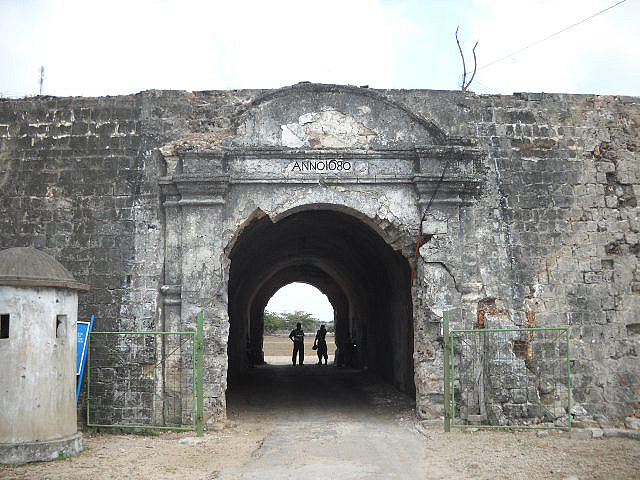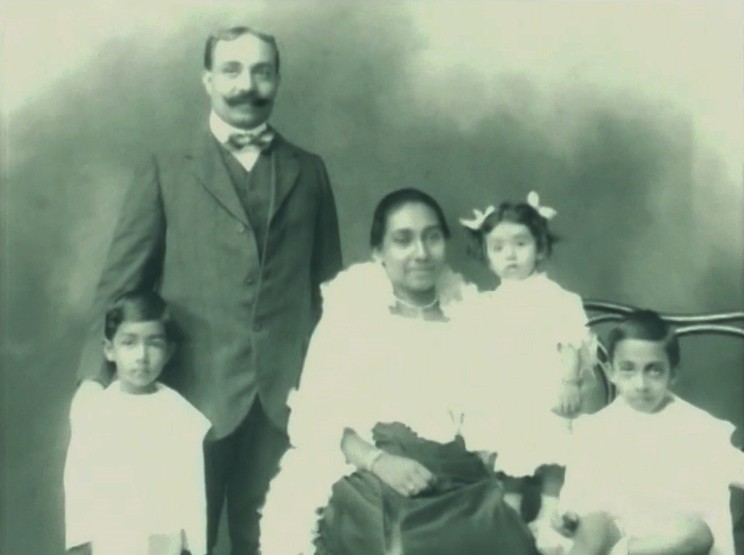|
Premala Sivaprakasapillai Sivasegaram
Premala Sivaprakasapillai née Sivasegaram (born 22 April 1942) is a Sri Lankan engineer. She is regarded as the country’s first female engineer and the first female civil engineer. She is also one of the prominent members of the Institution of Engineers, Sri Lanka. In March 2019, she was acknowledged as one of twelve female change-makers in Sri Lanka by the parliament, coinciding with International Women's Day. Biography Her father Thambyapillai Sivaprakasapillai was an engineer who worked at the Colombo Port. Her family stayed in Colombo but was later forced to move back to their hometown, Jaffna, following the bombing on Colombo Port by the Japanese in 1942 on the eve of Easter Sunday. Sivasegaram was born on 22 April 1942 in Jaffna. Career Sivasegaram received her education at the Ladies' College. She then entered the engineering faculty at the University of Ceylon in 1960. In 1964 she became the country’s first female engineering undergraduate and the first fema ... [...More Info...] [...Related Items...] OR: [Wikipedia] [Google] [Baidu] |
Jaffna
Jaffna (, ) is the capital city of the Northern Province of Sri Lanka. It is the administrative headquarters of the Jaffna District located on a peninsula of the same name. With a population of 88,138 in 2012, Jaffna is Sri Lanka's 12th most populous city. Jaffna is approximately from Kandarodai which served as an emporium in the Jaffna peninsula from classical antiquity. Jaffna's suburb Nallur served as the capital of the four-century-long medieval Jaffna Kingdom. Prior to the Sri Lankan Civil War, it was Sri Lanka's second most populous city after Colombo. The 1980s insurgent uprising led to extensive damage, expulsion of part of the population, and military occupation. Since the end of civil war in 2009, refugees and internally displaced people began returning to homes, while government and private sector reconstruction started taking place. Historically, Jaffna has been a contested city. It was made into a colonial port town during the Portuguese occupation of the J ... [...More Info...] [...Related Items...] OR: [Wikipedia] [Google] [Baidu] |
Easter Sunday Raid
The Easter Sunday Raid was an air attack on Colombo, Ceylon during the Indian Ocean raid by carrier-based aircraft of the Imperial Japanese Navy on 5 April 1942. The Japanese objective was to destroy the Ceylon-based British Eastern Fleet in harbour. The British preemptively dispersed shipping from the harbours before the attacks due to advance warning from intelligence in March 1942, and air reconnaissance during the raid. The attacking Japanese aircraft were met by fighters of the Royal Air Force's (RAF) 222 Group, commanded by Air Vice-Marshal John D'Albiac, and the Royal Navy's Fleet Air Arm (FAA), and anti-aircraft artillery. Port facilities were damaged, and ships both in harbour and - having dispersed - on the ocean were sunk or damaged. The bulk of the British Eastern Fleet was not found and survived. The raid demonstrated Ceylon's vulnerability; British forces were not prepared to face further Japanese carrier raids. The Eastern Fleet relocated its main base to East ... [...More Info...] [...Related Items...] OR: [Wikipedia] [Google] [Baidu] |
Alumni Of Somerville College, Oxford
Alumni (singular: alumnus (masculine) or alumna (feminine)) are former students of a school, college, or university who have either attended or graduated in some fashion from the institution. The feminine plural alumnae is sometimes used for groups of women. The word is Latin and means "one who is being (or has been) nourished". The term is not synonymous with "graduate"; one can be an alumnus without graduating (Burt Reynolds, alumnus but not graduate of Florida State, is an example). The term is sometimes used to refer to a former employee or member of an organization, contributor, or inmate. Etymology The Latin noun ''alumnus'' means "foster son" or "pupil". It is derived from PIE ''*h₂el-'' (grow, nourish), and it is a variant of the Latin verb ''alere'' "to nourish".Merriam-Webster: alumnus .. Separate, but from the s ... [...More Info...] [...Related Items...] OR: [Wikipedia] [Google] [Baidu] |
Alumni Of Ladies' College, Colombo
Alumni (singular: alumnus (masculine) or alumna (feminine)) are former students of a school, college, or university who have either attended or graduated in some fashion from the institution. The feminine plural alumnae is sometimes used for groups of women. The word is Latin and means "one who is being (or has been) nourished". The term is not synonymous with "graduate"; one can be an alumnus without graduating (Burt Reynolds, alumnus but not graduate of Florida State, is an example). The term is sometimes used to refer to a former employee or member of an organization, contributor, or inmate. Etymology The Latin noun ''alumnus'' means "foster son" or "pupil". It is derived from PIE ''*h₂el-'' (grow, nourish), and it is a variant of the Latin verb ''alere'' "to nourish".Merriam-Webster: alumnus .. Separate, but from the s ... [...More Info...] [...Related Items...] OR: [Wikipedia] [Google] [Baidu] |
Sri Lankan Tamil Civil Engineers
Shri (; , ) is a Sanskrit term denoting resplendence, wealth and prosperity, primarily used as an honorific. The word is widely used in South and Southeast Asian languages such as Marathi, Malay (including Indonesian and Malaysian), Javanese, Balinese, Sinhala, Thai, Tamil, Telugu, Hindi, Nepali, Malayalam, Kannada, Sanskrit, Pali, Khmer, and also among Philippine languages. It is usually transliterated as ''Sri'', ''Sree'', ''Shri'', Shiri, Shree, ''Si'', or ''Seri'' based on the local convention for transliteration. The term is used in Indian subcontinent and Southeast Asia as a polite form of address equivalent to the English "Mr." in written and spoken language, but also as a title of veneration for deities or as honorific title for local rulers. Shri is also another name for Lakshmi, the Hindu goddess of wealth, while a ''yantra'' or a mystical diagram popularly used to worship her is called Shri Yantra. Etymology Monier-Williams Dictionary gives the meaning of the ... [...More Info...] [...Related Items...] OR: [Wikipedia] [Google] [Baidu] |
Sri Lankan Engineers
Shri (; , ) is a Sanskrit term denoting resplendence, wealth and prosperity, primarily used as an honorific. The word is widely used in South and Southeast Asian languages such as Marathi, Malay (including Indonesian and Malaysian), Javanese, Balinese, Sinhala, Thai, Tamil, Telugu, Hindi, Nepali, Malayalam, Kannada, Sanskrit, Pali, Khmer, and also among Philippine languages. It is usually transliterated as ''Sri'', ''Sree'', ''Shri'', Shiri, Shree, ''Si'', or ''Seri'' based on the local convention for transliteration. The term is used in Indian subcontinent and Southeast Asia as a polite form of address equivalent to the English "Mr." in written and spoken language, but also as a title of veneration for deities or as honorific title for local rulers. Shri is also another name for Lakshmi, the Hindu goddess of wealth, while a ''yantra'' or a mystical diagram popularly used to worship her is called Shri Yantra. Etymology Monier-Williams Dictionary gives the meaning of t ... [...More Info...] [...Related Items...] OR: [Wikipedia] [Google] [Baidu] |
Living People
Related categories * :Year of birth missing (living people) / :Year of birth unknown * :Date of birth missing (living people) / :Date of birth unknown * :Place of birth missing (living people) / :Place of birth unknown * :Year of death missing / :Year of death unknown * :Date of death missing / :Date of death unknown * :Place of death missing / :Place of death unknown * :Missing middle or first names See also * :Dead people * :Template:L, which generates this category or death years, and birth year and sort keys. : {{DEFAULTSORT:Living people 21st-century people People by status ... [...More Info...] [...Related Items...] OR: [Wikipedia] [Google] [Baidu] |
1942 Births
Year 194 ( CXCIV) was a common year starting on Tuesday (link will display the full calendar) of the Julian calendar. At the time, it was known as the Year of the Consulship of Septimius and Septimius (or, less frequently, year 947 ''Ab urbe condita''). The denomination 194 for this year has been used since the early medieval period, when the Anno Domini calendar era became the prevalent method in Europe for naming years. Events By place Roman Empire * Emperor Septimius Severus and Decimus Clodius Septimius Albinus Caesar become Roman Consuls. * Battle of Issus: Septimius Severus marches with his army (12 legions) to Cilicia, and defeats Pescennius Niger, Roman governor of Syria. Pescennius retreats to Antioch, and is executed by Severus' troops. * Septimius Severus besieges Byzantium (194–196); the city walls suffer extensive damage. Asia * Battle of Yan Province: Warlords Cao Cao and Lü Bu fight for control over Yan Province; the battle lasts for over 100 ... [...More Info...] [...Related Items...] OR: [Wikipedia] [Google] [Baidu] |
Black July
Black July ( ta, கறுப்பு யூலை, translit=Kaṟuppu Yūlai; si, කළු ජූලිය, Kalu Juliya) was an anti-Tamil pogrom that occurred in Sri Lanka during July 1983. The pogrom was premeditated,T. Sabaratnam, Pirapaharan, Volume 2, Chapter 2 – The Jaffna Massacre (2003)T. Sabaratnam, Pirapaharan, Volume 2, Chapter 3 – The Final Solution (2003) and was finally triggered by a deadly ambush on 23 July 1983, which caused the death of 13 Sri Lanka Army soldiers, by the Tamil militant group Liberation Tigers of Tamil Eelam (LTTE). Although initially orchestrated by members of the ruling UNP, the pogrom soon escalated into mass violence with significant public participation. On the night of 24 July 1983, anti-Tamil rioting started in the capital city of Colombo and then spread to other parts of the country. Over seven days, mainly Sinhalese mobs attacked, burned, looted, and killed Tamil civilians. Estimates of the death toll range between 400 and 3, ... [...More Info...] [...Related Items...] OR: [Wikipedia] [Google] [Baidu] |
Junius Richard Jayawardene
Junius Richard Jayewardene ( si, ජුනියස් රිචඩ් ජයවර්ධන, ta, ஜூனியஸ் ரிச்சட் ஜயவர்தனா; 17 September 1906 – 1 November 1996), commonly abbreviated in Sri Lanka as J.R., was the leader of Sri Lanka from 1977 to 1989, serving as Prime Minister from 1977 to 1978 and as the second President of Sri Lanka from 1978 to 1989. He was a leader of the nationalist movement in Ceylon (now Sri Lanka) who served in a variety of cabinet positions in the decades following independence. A longtime member of the United National Party, he led it to a landslide victory in 1977 and served as Prime Minister for half a year before becoming the country's first executive president under an amended constitution. A controversial figure in the history of Sri Lanka, while the open economic system he introduced in 1978 brought the country out of the economic turmoil Sri Lanka was facing as the result of the preceding closed ... [...More Info...] [...Related Items...] OR: [Wikipedia] [Google] [Baidu] |
Women's Engineering Society
The Women's Engineering Society is a United Kingdom professional learned society and networking body for women engineers, scientists and technologists. It was the first professional body set up for women working in all areas of engineering, predating the Society of Women Engineers by around 30 years. History The society was formed on 23rd June 1919, after the First World War, during which many women had taken up roles in engineering to replace men who were involved in the military effort. While it had been seen as necessary to bring women into engineering to fill the gap left by men joining the armed forces, the government, employers, and trades unions were against the continuing employment of women after the war. The Restoration of Pre-War Practices Act 1919 gave soldiers returning from World War I their pre-war jobs back and meant many women could no longer work in roles they were employed to fill during the war. This led a group of seven women, including Lady Katharine Parso ... [...More Info...] [...Related Items...] OR: [Wikipedia] [Google] [Baidu] |
Easter Sunday
Easter,Traditional names for the feast in English are "Easter Day", as in the ''Book of Common Prayer''; "Easter Sunday", used by James Ussher''The Whole Works of the Most Rev. James Ussher, Volume 4'') and Samuel Pepys''The Diary of Samuel Pepys, Volume 2'') as well as the single word "Easter" in books printed i157515841586 also called Pascha (Aramaic, Greek, Latin) or Resurrection Sunday, is a Christian festival and cultural holiday commemorating the resurrection of Jesus from the dead, described in the New Testament as having occurred on the third day of his burial following his crucifixion by the Romans at Calvary . It is the culmination of the Passion of Jesus Christ, preceded by Lent (or Great Lent), a 40-day period of fasting, prayer, and penance. Easter-observing Christians commonly refer to the week before Easter as Holy Week, which in Western Christianity begins on Palm Sunday (marking the entrance of Jesus in Jerusalem), includes Spy Wednesday (on which the b ... [...More Info...] [...Related Items...] OR: [Wikipedia] [Google] [Baidu] |







